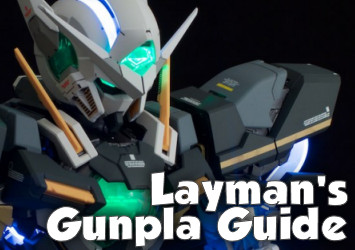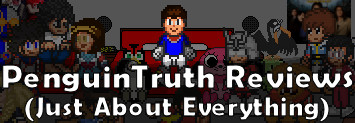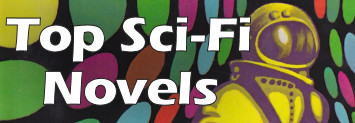If you're an anime fan, chances are you have an opinion on English dubs. When I started out as a fan, I was only watching anime on American television, so everything was dubbed. When I began collecting anime, on VHS tapes, it was rare to come across one with Japanese audio and English subtitles, and you almost prized those for their rarity. Still, English dubs were mostly the only way to go, and you were glad to have them in those days, because after all, you didn't want things like words on the bottom of the screen to get in the way of your favorite Japanese cartoon.
Fansubs were different, though. Fansubs were, for a while, and somewhat even to this day (but I would argue to a far lesser degree), the backbone of the anime industry in North America. These were mostly for shows that you either couldn't get in the stores or ones that you couldn't get unedited. I had a huge stack of Dragon Ball Z tapes just a decade ago. You might buy two or three movies for fifteen dollars and get shoddy video quality tapes, but loved them anyway because you got to see Goku bleed or Vegeta curse (often an unnecessary addition to the subtitles) and that was cool. Still, English dubs were the main event.
As DVDs came into the picture, so did the option of watching an anime in either language, which excited anime fans. Then, of course, fansubs became more largely distributed on the internet. As more fans flocked to the fandom, largely out of the convenience of airing on Cartoon Network, there came sort of an internal conflict within the fandom, a class warfare among anime fans. Which was better? The fansubs or the DVDs? And more to the point, who really wanted to watch a foreign program in a language that wasn't the originally intended language? Who was the "true" fan, the one who bought the DVDs or the ones who didn't contribute to a market many felt was bastardizing and watering down the product they loved? The biggest fear, however, was that an obscure hobby for Americans- watching and collecting cartoons from Japan- was becoming too mainstream, attracting undesirables to the fandom. This, at least, is the contention of some. Not by me.
So when you mention "anime dub", it will provoke different thoughts and feelings from various fans. Many feel that, because it's not in the original language, the English dub of an anime is inherently inferior. Others point to the quality of voice actors, their performances, and the over-saturation of certain voice actors. Some will agree that some dubs are good while others insist none of them. Few even hold to the belief that reading subtitles is too inconvenient and prefer to watch with the English track on. The question is, what is a good anime dub?
What do you do to make a quality anime dub? Does a company try for complete accuracy to the script or play around a bit with the wording while keeping the spirit of the production in mind? What should be translated and what not? Does anything need to be localized? Should a company strive to cast voice actors that match the voices of the original cast or try harder to simply match the characters themselves?
I don't pretend to have the answer to these questions. But, over time, even some of the most strict purists of anime fandom have made exceptions to their rule for but a few English versions. The following is my personal list. Keep in mind that it represents mostly my own points of view. Feel free to argue to the contrary or suggest additions. It doesn't mean I'll agree, but it's worth conversing about.
My list is as follows:
Cowboy Bebop
Released: 1999
ADR Production: Animaze
Release Studio: Bandai Entertainment
(Steven Jay Blum, Wendee Lee, Beau Billingslea, Melissa Fahn)
Often considered the king of anime English dubs, the Cowboy Bebop dub owes a lot to the chemistry of a strong central cast. They all play off each other so well, one could get the impression that the voice talent actually hangs out together. Individually, Steven Blum's smooth Spike, Wendee Lee's sassy Faye, Beau Billingslea's amiable Jet, and Melissa Charles's otherworldly Edward are all strong. Together, they're a force. This is one of those few English dubs many (including myself) prefer to the original Japanese track. The tradition continues with the movie, in addition to the voices added just for it.
The Big O
Released: 2001 (1), 2003 (2)
ADR Production: Animaze
Recording Studio: Magnitude 8 Post
Release Studio: Bandai Entertainment
(Steven Jay Blum, Wendee Lee, Lia Sargent, Michael Forest)
Perhaps owing to the Big Apple-esque settings of Paradigm City, the character names, and the often jazzy soundtrack, The Big O sounds very natural in English. Steven Blum adds a bit of rigidity to his Roger Smith that is necessary to seperate him from his other roles in dubs. There's still more chemistry between Blum and Wendee Lee in the scenes with Roger and the mysterious Angel. The second season continues strong casting, adding Crispin Freeman as the unsettling Alan Gabriel. The Big O dub is the big showtime.
FLCL
Released: September 2002
ADR Production: Synch-Point
Release Studio: Synch-Point
(Barbara Goodson, Kari Wahlgren, Jennifer Sekiguchi, Dave Mallow)
The bizarre, frantic, and quirky FLCL has a likewise quirky, energetic English dub which, for all intents and purposes, stars the breakout star Kari Wahlgren as the weird and charming Haruko. She has a energy that reverberates through the short but sweet OVA about what it means to grow up and who shouldn't grow up so soon. To that end, I would be amiss not to mention Barbara Goodson's Naota Nandaba, which is spot-on, and serves best in scenes where Naota is interacting with Mamimi (played wonderfully delusional by Jennifer Sekiguchi) or handling Haruka's nonsense. Dave Mallow plays up Amarao's goofy "trying to be cool and adult" attitude, though he also has quite a bit of wisdom. Localizations can be found here and there, but it never interferes, only serving to help associate English-speaking viewers with some of the wackiness.
Ghost in the Shell: Stand Alone Complex
Released: July 2004 (1), September 2005 (2)
ADR Production: Animaze
Recording Studio: Magnitude 8 Post
Release Studio: Bandai Entertainment, Manga Entertainment
(Mary Elizabeth McGylnn, Richard Epcar, Crispin Freeman, William Knight)
One of the big issues in an anime with a lot of techno-babble, philosophical jargon, and political talk, is an adaptation that isn't just accurate to the letter, but also somewhat makes it easier to handle. In some ways, that's what makes an English dub for a show like this so preferable. I still found it difficult to keep up at times, but that was more due to the nature of the story itself. Otherwise, the voices suit their roles quite well, especially the dominating performance by Mary Elizabeth McGlynn. She's also complimented well by other VA vets like Richard Epcar, William Knight, Robert Buchholz, and others. Crispin Freeman proves himself again as a remarkable talent as the voice of Section 9's "rookie", Togusa. Even minor roles like the Tachikoma are well filled. I also enjoyed Steven Blum's performance as The Laughing Man, though he does come off as being a little old to be voicing a young kid like that. A strong dub all around.
Hellsing (and Hellsing Ultimate)
Released: July 2002 (TV) December 2006 (OVA)
ADR Production: New Generation Pictures
Recording Studio: The Post Office, LLC
Release Studio: Pioneer Entertainment
(Crispin Freeman, Katherine Gray, Victoria Harwood, Steven Brand)
Wonderful British voicing wonderful British. Well, except for our star Crispin Freeman, but good luck finding a good Romanian voice actor who sounds as amazing as Freeman as Drac---er, Alucard. And he really has fun with the role, a role which he is best known for. You can tell he enjoys the pain Alucard inflicts almost as much as Alucard himself. It almost makes me fear Freeman. Likewise, Gray and Harwood both peform solidly. What impresses me the most, though, is Steven Brand's Alexander Anderson. Truly disturbing. And luckily they returned to the cast for the dub of the Hellsing Ultimate OVA. It's too bad the OST of the TV series couldn't return.
Death Note
Released: October 2007
ADR Production: The Ocean Group (Ocean Studios)
Release Studio: Viz Media
(Brad Swaile, Alessandro Juliani, Brian Drummond, Cathy Weseluck)
For anyone who thought, like I did, that the days of truly great dubs were over, and they'd settled into the mediocre (or worse) range, the English version of Death Note was an awakening, proof that really good English dubs could still be produced. Probably Ocean's finest work to date, the Death Note dub dares to have newcumbers like Alessandro Juliani, Shannon Chan-Kent, and Chris Britton in vital roles in an extremely popular series. Their daring paid off in spades, because the main cast of Death Note's dub is nothing short of perfect. Brad Swaile lives well up to the standard of Light Yagami's Japanese voice actor, Mamoru Miyano. Juliani's L grabs L's subtleties well. L's successor's, Near (Weseluck) and Mello (David Hurwitz), while awkward at first, grow into the roles in plenty time to contribute greatly to the continuing quality of the dub. Now, of the two tracks, I'd probably give the Japanese one the slight edge, but I think when I finally purchase the DVDs, I'll give both about equal play time.
You're probably wondering where Fullmetal Alchemist is on this list. It's not here because, in my opinion, it doesn't deserve the attention it gets as a dub. Vic Mignogna does a dry, uninterested Edward Elric, completely missing the nuances of pathos inherent in the character. Chris Patton's Greed is flat. Wendy Powell can't decide what gender Envy is. Catlin Glass's Winry is like nails on a chalkboard. Sure, it houses strong performances by Aaron Dismuke (Alphonse Elric), Travis Willingham (Roy Mustang), Christine Auten (Izumi Curtis), and a couple of others, but I felt like there just weren't enough strong performances to elicit an inclusion to this list. It's not a horrible dub by any measure, but just sort of mediocre. I prefer the strong Japanese cast, including Romi Paku, Rie Kugimiya, and Junichi Suwabe. Likewise, other anime dubs I actually like, like The Melancholy of Haruhi Suzumiya, Spirited Away, Lupin III (Series 2), and others are fine, but a little too uneven to match up with the likes of the above.
A little story about Wendee Lee: On the Anime News Network forums, where I'm a regular, there was once a thread about the dub of The Melancholy of Haruhi Suzumiya, where the scene in episode 11 ("Live A Live") where Haruhi sings was discussed. I'd previously been critical of the casting of Ms. Lee as Haruhi, not because she's not a good VA, but because, let's face it, Lee is a tad old to voice high school girls. I changed my mind about it, though, when I was surprisingly impressed by her performance on the first disc of the dub.
However, I was still skeptical about how she would do with the singing. Aya Hirano, Haruhi's Japanese voice, is an accomplished voice actress and singer, and has the youthful vibrancy that Haruhi needs to deliver "God Knows" and "Lost My Music". So I voiced my skepticism, qualifying it with what a fan I was of Wendee Lee's work, regardless. This was in a thread that was on the twentieth page after some time, because, I think it was probably a review of a R1 DVD for the show.
On August 1st, my birthday this year, I opened my Google Mail account and in the inbox, I got an e-mail from Wendee Lee. She defended her work, telling me that she's been a professional singer and actress since childhood. Well, fine. I'm not really familiar with her work, other than voice dubbing, but I have no reason to doubt her words. I checked her website. True enough, it was really from her e-mail address. I doubt anyone would take the time to hack her e-mail address to send a scolding e-mail to one of her fans about something they wrote about her months earlier. Then again, why would she?
Anyway, I wrap up this article with this anecdote because I think a lot of voice actors and actresses in the anime dub industry feel a little self-conscious about being compared to the original talent in the roles they dub for. Make of this what you will. I personally think this means that, if you do actually like a dub, you should be vocal about it, whether your opinions are in line with mine (the right opinions, by the way) or not. Tell the voice actors that you like their work. It couldn't hurt.
By the way, I still love Wendee Lee.
- Penguin Truth
Michael Fitz-Gibbon
penguintruth@gmail.com







